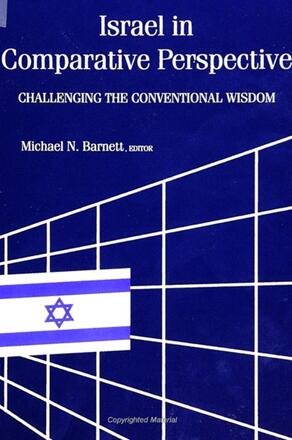
Israel in Comparative Perspective
Challenging the Conventional Wisdom
Alternative formats available from:
Challenges the social-science image of Israel as a historical peculiarity by situating Israel's history in comparative context; by building bridges between Israel and other Middle Eastern states; and by using the Israeli case to reconsider existing social science theories and correct common misperceptions about the comparative method.
Description
Because Israel is unique in many dimensions, many social scientists consider it a historical peculiarity. Neither East nor West, developed nor undeveloped, capitalist nor socialist, Third World nor First World, Israel has little in common with other countries and their historical experiences. This book of original essays challenges the image of Israeli uniqueness and the status of the Israeli case and at the same time corrects some common misperceptions about the comparative method in general and case selection in particular. At the same time, it compares Israeli and Arab experiences and addresses critical issues in Middle Eastern studies.
To challenge the image of Israeli uniqueness, the authors situate Israel's history in comparative context; employ macrohistorical concepts both to reexamine the Israeli case and to build bridges between Israel and other historical experiences; and use the Israeli case to reconsider existing social science theories. [Articles by Michael Barnett, Yehezkal Dror, Rebecca Kook, Ian Lustick, Joel Migdal, Gershon Shafir, Gabriel Sheffer, Shibley Telhami, and Mark Tessler and Ina Warriner] Israel in Comparative Perspective demonstrates how our understanding of the region can be enriched by using models and theories developed in other regions to reexamine Israeli history.
Michael N. Barnett is Associate Professor of Political Science at the University of Wisconsin-Madison. He is the author of Confronting the Costs of War: Military Power, State, and Society in Egypt and Israel.
Reviews
"This excellent analysis draws on social science theory that properly puts Israel in a larger comparative context. On a very important topic, this book fills a major gap in the literature. " — Robert O. Freedman, Baltimore Hebrew University
"The issues in this stimulating volume should inspire a whole range of comparative studies. " — Studies in Contemporary Jewry